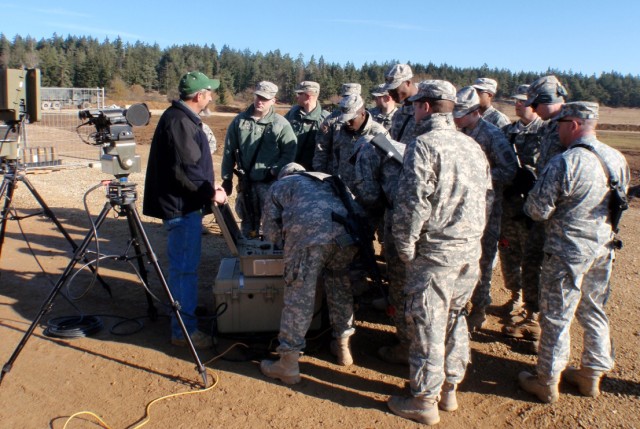
LONDON -- When Soldiers need special equipment solutions, they need them quickly.
On the commander's special staff, one person in particular serves a vital purpose - to get answers to technology questions and push scientific solutions that support Soldiers on the ground.
In Europe, Field Assistance in Science and Technology science advisors work to provide this scientific support to Army commanders to unburden their staffs and provide current technologies to those who need them.
"A science advisor can link someone back to over 17,000 lab workers," said Col. Cynthia Bedell, commander, Research, Development, and Engineering Command (RDECOM) Forward Element Command - Atlantic (RFEC-A).
Bedell is responsible for the overall FAST mission throughout Europe, Africa, and the Middle East, and the International Technology Centers in Europe.
Each combatant command and training center has a science advisor position, providing demonstrations and material solutions for commanders, said Lt. Col. Joseph Dupont, commander for FAST-Atlantic.
Understanding and utilizing the science advisor is critical, not only for the commander, but for their staff. According to the Army Materiel Command Regulation 10-21, the role incorporates multiple functions that bring the strengths of RDECOM to the fingertips of the troops.
"We expedite new material into the hands of the Soldier and user," said Dr. Bruce Sterling, a science advisor for the Joint Multinational Training Center in Germany for the past three years.
Talking to Soldiers is important to both understand their needs and gain feedback on new material, he said.
The Army acquisition process and Army Research Laboratory system are not common knowledge for many in the military, so selling RDECOM and educating people about its programs are part of the science advisors' implied responsibilities.
Science advisors have to show salesmanship, explained Sterling, admitting that becoming an extrovert is sometimes a challenge in the position, but truly the best way to conduct business.
"You have to have the ability to listen to people and accurately reflect this back to the labs," he said.
Not without its challenges, a balancing act naturally occurs between getting the best solution in the quickest amount of time. But science advisors use several solutions to keep the balance, including testing existing technologies, reporting on commercial products, and field-testing prototypes directly from the labs and centers.
Whether it is coordinating training simulations, demonstrating new technologies, or modifying old ones, the job of the unit science advisor is to take notice of what Soldiers and commanders need for the current fight and for the Army of tomorrow.

Social Sharing